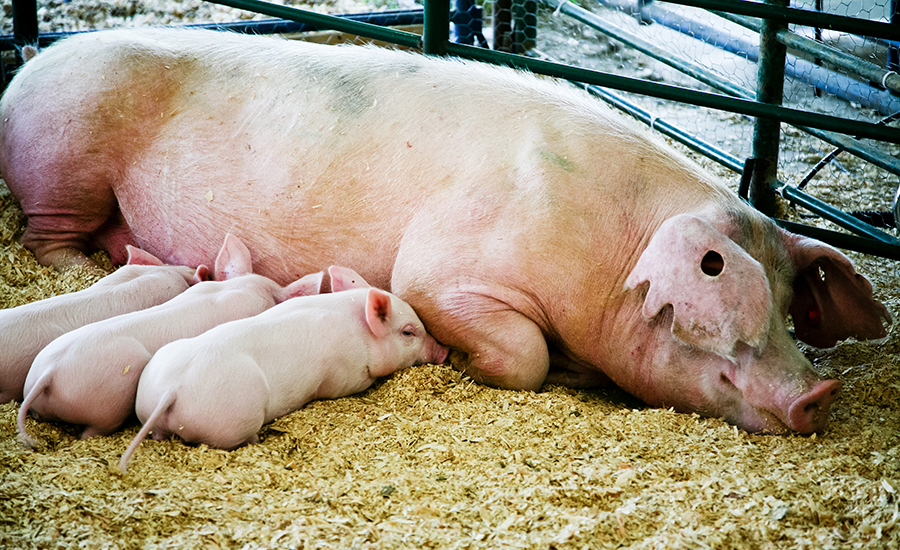The U.S. Supreme Court has agreed to hear a case brought by the National Pork Producers Council and the American Farm Bureau Federation against California’s Proposition 12, which bans the sale of pork from hogs born to sows that weren’t raised according to the state’s production standards.
“We are extremely pleased that the Supreme Court will consider the constitutionality of Proposition 12, in which California seeks to impose regulations targeting farming practices outside its borders that would stifle interstate and international commerce,” NPPC President Terry Wolters said. “NPPC has poured a lot of blood, sweat and tears into preserving the rights of America’s pork producers to raise hogs in a way that’s best for their animals’ well-being and that allows them to continue selling pork to all consumers, both here and internationally.”
NPPC has waged a legal battle against the ballot initiative since it was approved in November 2018, arguing at the U.S. district and appellate court levels that Prop. 12 violates the Constitution’s Commerce Clause, which grants Congress the power to regulate trade among the states and limits the ability of states to regulate commerce outside their borders.
“AFBF is pleased with the Supreme Court’s decision to consider the constitutionality of California’s law imposing arbitrary requirements on farmers well outside its borders," AFBF President Zippy Duvall said. "We share California’s goal of ensuring animals are well cared for, but Prop. 12 fails to advance that goal. We look forward to presenting the facts to the court, including how Prop. 12 hamstrings farmers’ efforts to provide a safe environment for their animals, while harming small family farms and raising pork prices across the country.”
The high court is taking up the case on appeal from the U.S. Court of Appeals for the 9th Circuit, which in July 2021 upheld a lower court ruling against the NPPC-AFBF lawsuit, finding that precedent didn’t allow the case to continue.
NPPC and AFBF in the coming weeks will file their initial brief with the Supreme Court, which could hear oral arguments in the fall and could render a decision by the end of the year.
Prop. 12 went into effect Jan. 1 and prohibits the sale in California of pork from hogs whose mothers were raised in pens — anywhere in the world — that do not comply with the state’s prescriptive housing standards. It applies to any uncooked pork sold in the state, whether produced there or elsewhere.
Nearly all pork produced in the United States fails to meet California’s Prop. 12 regulations. Business groups in California recently got a state superior court to delay the effective date of Prop. 12 for 180 days after final implementing regulations are issued.
“In addition to its unconstitutional extraterritoriality,” Wolters said, “Prop. 12 sets arbitrary animal housing standards that lack any scientific, technical or agricultural basis and that will only inflict economic harm on U.S. hog farmers and consumers.”
To continue selling pork to California's nearly 40 million consumers (about 15% of the U.S. pork market), pork producers would need to switch to alternative sow housing systems, which industry sources estimate would cost billions of dollars and raise consumer pork prices.



Report Abusive Comment